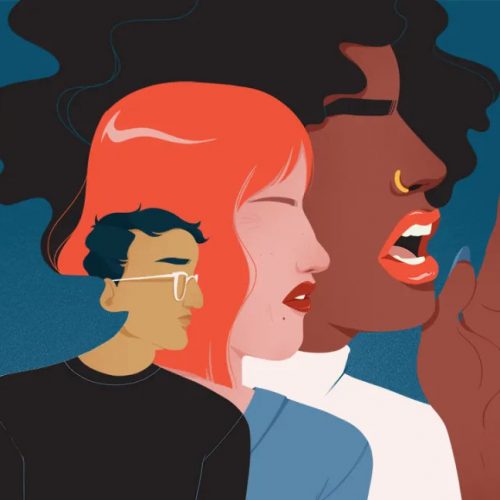On June 25, America’s Supreme Court voted 6-3 to overturn Roe v. Wade, reversing the 1973 ruling that established abortion as a constitutional right. As a result, almost half of US states are expected to outlaw the right to abortion, with bans coming into effect in several states already, including South Dakota, Arkansas, Utah, and Louisiana, among others. In addition to banning abortion around six weeks in all cases of pregnancy, the new ruling also bans pregnancies resulting from rape or incest.
Naturally, the news was met with anger and horror, with many around the world, including political leaders, taking to social media platforms such as Twitter and Instagram to voice their rightful outrage. However, while some opted to condemn the SCOTUS ruling, others took the opportunity to compare the shocking decision to Islam and Sharia Law.
“Banning abortion sure does remind me of that Sharia Law the Republicans have been bellowing about for the last 20 years,” Tweeted one account.
“Republicans all say they don’t want Sharia Law but they sure seem to be pushing the country in that direction,” wrote another.
These are only a couple of examples of the social media posts drawing comparisons between anti-abortion restrictions and Islam being re-shared across social media in light of the recent SCOTUS decision.
Not only does the equation of anti-abortion laws with Sharia Law perpetuate Islamophobic beliefs, and is beyond racist, it’s simply unfounded.
What many of the people who are using Islamic terms to express their dismay at America’s position on abortion rights fail to realize is that Islam has a deeply nuanced position on abortion that puts women first. Sharia Law actually permits abortion up to 120 days, in cases of rape and incest, when the fetus is non-viable, and to save the mother’s life.
Take Tunisia as example; the country with a Muslim population of approximately 99 percent, legalized abortions in 1973. Married and unmarried women in the North African country are permitted to get abortions up until the end of the first trimester, without marital consent in line with Sharia Law. What’s more, the abortion pill is priced reasonably, relative to the local economy, making it accessible to all Tunisian women seeking to terminate their pregnancy regardless of their socio-economic status.
Your friendly local Muslim & lawyer here to remind you Sharia permits abortion up to 120 days, for rape/incest, when fetus is non-viable,& to save the mother’s life—as a decision between a woman & her Dr
Stop using our faith as your punchline—This is 100% ‘Christian’ nationalism
— Qasim Rashid, Esq. (@QasimRashid) June 25, 2022
Sharia Law is therefore more lenient in regards to women’s rights when it comes to abortion than the US states enforcing bans.
By comparing anti-abortion ideology to Islam or Sharia, many Americans are overlooking the bigger problem of the right wing, Christian fundamentalism movements led by white, American men. Those using Islam to critique the US’s stance on abortion laws are only excusing the very white roots of the anti-choice movements.
Over the past few of decades, Islam and Sharia Law have become go-to examples of extremism around the world, and the reactions to the recent anti-abortion ruling prove that much of the religion and Sharia Law are in fact deeply misunderstood. In short, America’s refusal to acknowledge the roots of the country’s modern anti-abortion stance in Christian fundamentalism is a much bigger threat to women’s rights in the US than Islam.









